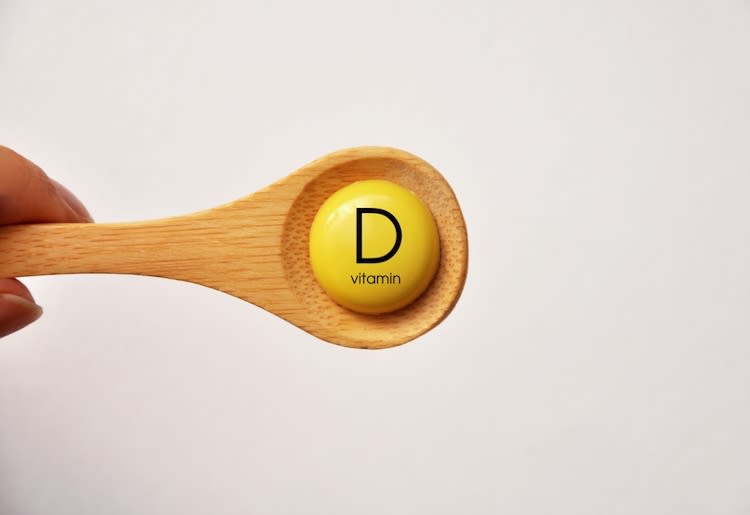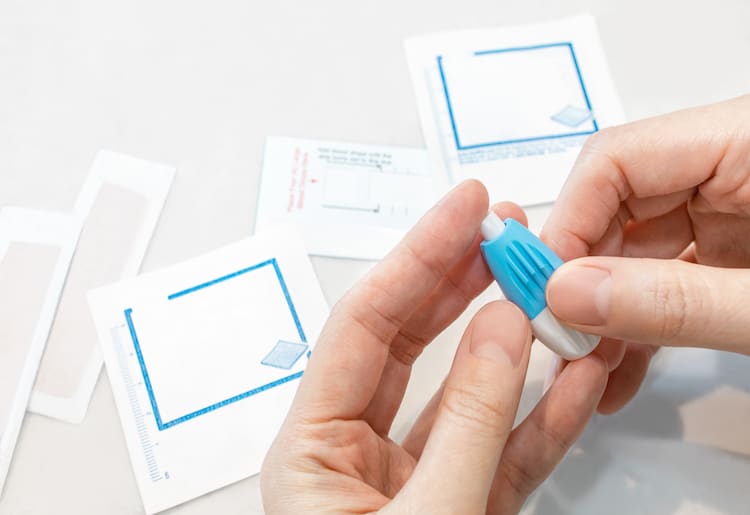DNA testing can improve sports performance by helping us understand our genetic makeup and why our athletic ability differs from others with the same training regime and diet.
As a fitness fan, I enjoy working out, but it takes more than 72 hours for my muscles to fully recover. According to a study published in the International Journal of Exercise Science, this is the upper limit of optimal rest time. And due to genetic variations in our DNA, your muscles might be able to bounce back faster—in just 24 hours.
So, let's dive into how at-home blood tests for athletic performance can inform your daily routine for better results.
» Ready to enhance your athletic durability? Check out these DNA testing kits.
1. Improves Recovery & Strength
DNA tests can show if you've been exercising too much or have poor recovery.
For example, they can detect high C-reactive protein (CRP), an inflammatory marker typically caused by overtraining, and increased cortisol levels, which causes chronic fatigue and reduced strength.
Improved eating and exercise habits can help optimize your CRP and cortisol levels to help with recovery times.
2. Manages Training & Nutrition
Blood tests can pinpoint nutritional deficiencies, such as:
- Iron
- Vitamin D
- Omega-3
A State University of New Jersey study estimates that insufficient vitamin D levels are common in up to 42% of female athletes. Such a deficiency can increase the risk of bone injuries.
Bone fractures can affect training—even if you take prescribed vitamin D supplements—because required vitamin amounts can differ per person. But a medical professional can help you find the right nutrient combination to accommodate your training.

3. Checks Hydration Status
Most athletes lose water and electrolytes during exercise, causing dehydration. Blood tests can identify your blood osmolality (the number of dissolved particles in your blood) and sodium levels. If elevated, these markers indicate possible dehydration.
Since hydration levels vary pre- and post-exercise, you can use your results to create a fluid replacement strategy for both states so you know how much is needed for optimal recovery and athletic performance.
4. Determines Injury Risk
A proper blood test will reveal everything you need to know about your genes. Genotypes in the GDF5 or IGF2 genes are biomarkers that show your susceptibility to certain sports injuries.
If you test positive for these genes, we suggest the following:
- Wearing protective gear for your muscles
- Exercising with the correct technique
- Using the ideal equipment for training
- Seeking advice from a certified fitness trainer to assist in developing your ideal exercise routine
5. Assesses Stress Levels & Muscle Status
If you notice a lag in recovery or struggle to continue exercising, it may be a sign that you need to take a blood test.
This test measures biomarkers in your blood, such as:
- Creatine kinase (CK)
- Amino acids
- Urea nitrogen
After a muscle-damaging exercise, CK leaks into your blood from your muscle. These increased levels of CK are normal for the first seven days after a workout.
However, chronically high levels show your recovery may be insufficient. Monitoring CK and amino levels during training helps manage your stress levels and muscle status, optimizing athletic performance.
» Struggling to bulk up? DNA tests can determine your genetic limit to muscle growth.
6. Boosts Confidence
As a professional athlete, understanding how your body works can give you an edge over your competitors.
Results from a blood test can be useful for identifying your strengths and weaknesses while helping you determine which training routines to follow to improve your performance.
They can also show you how to adapt your exercise regime, giving you confidence that you're in total control of your bones, muscle, and cardiovascular health.

7. Detects Hormonal Imbalance
For optimal athletic performance and adaption to training intensity, you need these hormones:
- Testosterone
- Cortisol
- Luteinizing hormone
- Insulin-like growth (IGF-1)
Testosterone promotes protein synthesis and boosts red blood cell production, while cortisol inhibits it. By taking a blood test, you'll know which hormones to increase and which to decrease. And monitoring the two helps you maintain a balance between the energy you create versus the energy you exert.
8. Helps With Weight Management
The best DNA tests for weight loss and diets can teach you what and when to eat because they:
- Show you how fast your body breaks down food
- Determine what your fat-burning capacities are
- Help identify how much exercise you'll need
- Evaluate how fast you can lose weight
This all contributes to finding a suitable training and dietary routine to improve your athletic performance.
9. Measures Endurance Level
Blood tests can also measure iron levels, a significant biomarker for cardiovascular endurance and aerobic metabolism. During digestion, your body breaks down carbs, protein, and fats in the presence of oxygen to produce energy. Here, iron acts as a vehicle for transporting oxygen.
So, what happens when iron levels are low? There isn't enough oxygen to metabolize these substrates into energy. Simply put, you'll get tired quickly, causing shorter training sessions than you may need or want.
10. Monitors Overall Health
A complete blood count can detect if you're susceptible to infections. Every part of your body needs to be healthy enough to withstand your training.
For example, if you have an underactive thyroid (hypothyroidism), it may cause water build-up in your body, leading to weight gain.
Treating conditions like these can regulate your body for more sustainable training. However, be sure to seek assistance from your medical practitioners for an accurate diagnosis.
» Looking to manage your physical well-being? Try the best DNA tests for health.

Optimize Your Training & Reach Your Fitness Goals
At-home blood tests, like Vitagene, can give you insight into your health status. Plus, knowing what your body needs can help you enhance your training to get the best results.
You can also take it further with LetsGetChecked, an at-home blood test that reveals any health-related or hormonal issues that may hinder your progress during exercise. From there, seek professional support to develop actionable changes in your routine.
» Here's how DNA test results can help you boost your immune system naturally.

